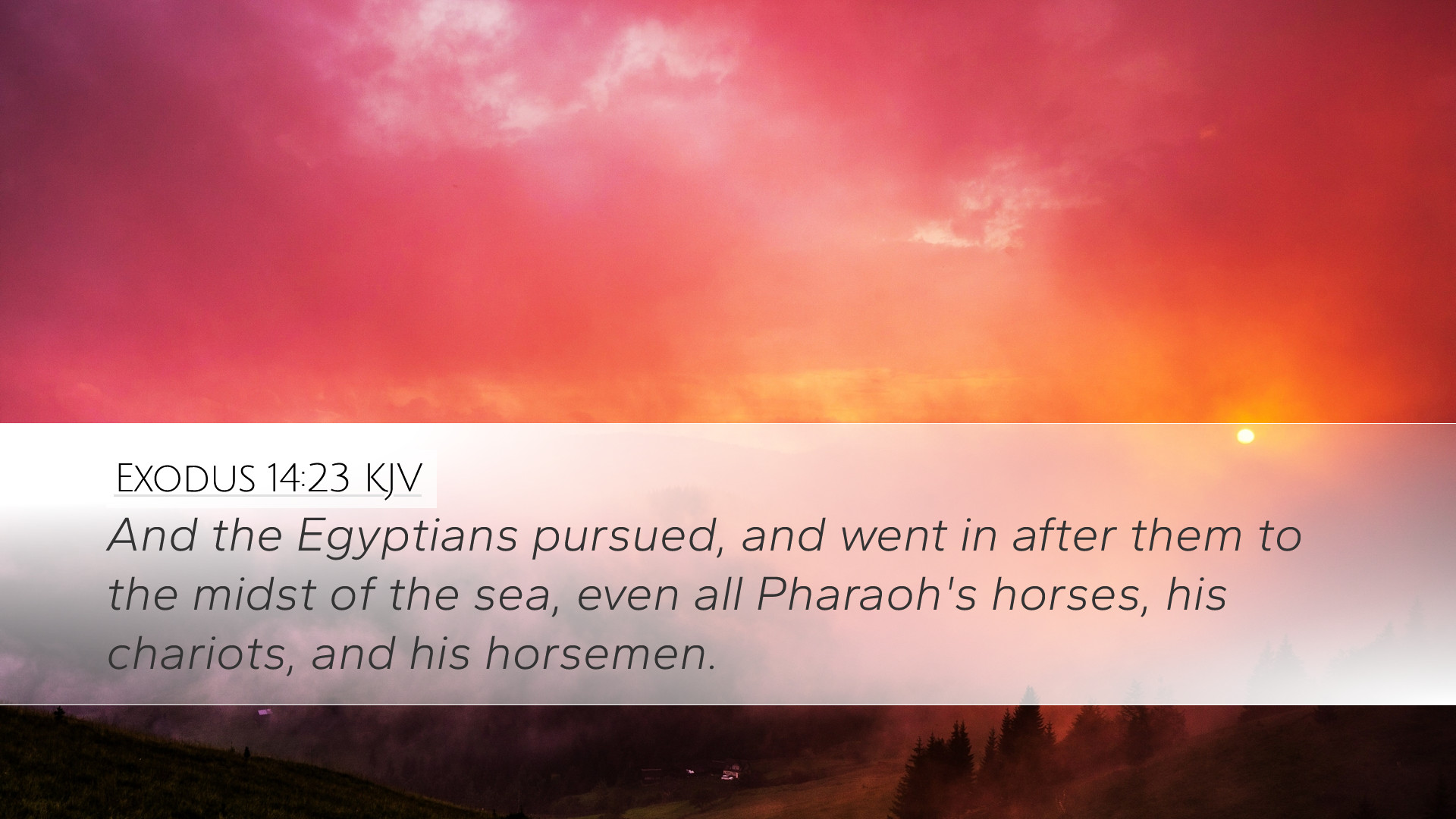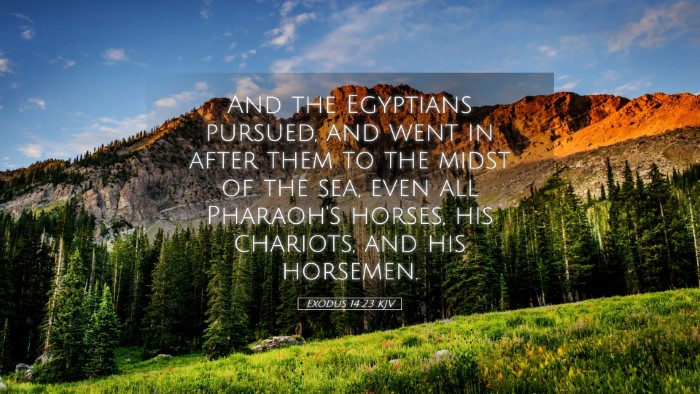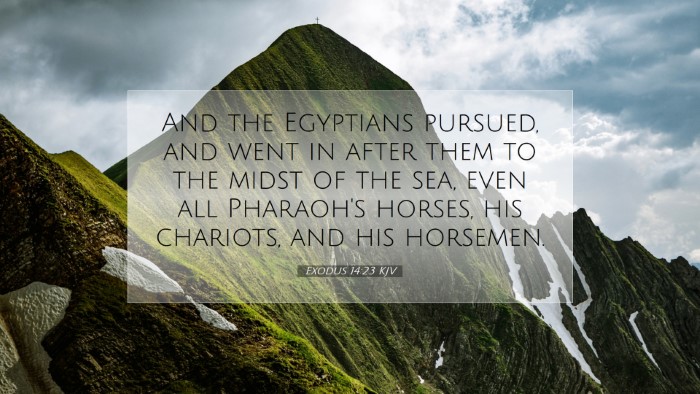Exodus 14:23 Commentary Summary
Verse: "And the Egyptians pursued and went in after them to the midst of the sea, even all Pharaoh's horses, his chariots, and his horsemen."
Contextual Overview
This verse is situated within a pivotal moment of the Exodus narrative, illustrating the pursuit of the Israelites by Pharaoh and his army. As the Israelites cross the Red Sea, this episode demonstrates the intense conflict between divine deliverance and human obstinacy. The backdrop of slavery and liberation is crucial to understanding the significance of this moment.
The Pursuit of the Egyptians
The determination of the Egyptians to pursue the Israelites, despite the miraculous conditions of the crossing, highlights the themes of pride and rebellion against God. Matthew Henry comments on how Pharaoh’s heart was hardened, indicating that his refusal to heed the signs of God’s power led to a tragic end for his armies. The narrative illustrates that often, the most obstinate hearts are those that refuse to acknowledge divine intervention.
Human Pride and Divine Judgment
- Albert Barnes notes: "The obstinacy of Pharaoh is a warning; the judgment that befell him serves as a historical lesson for future generations about the consequences of defiance towards God."
- Adam Clarke elaborates that such pride leads not just to the downfall of the pursuer but also serves as a stark reminder of God’s sovereignty in contrasting human will against divine purpose.
Spiritual Illustration
The crossing of the Red Sea serves as a powerful spiritual illustration. The feel of imminent peril from the Egyptians evokes the broader biblical theme of salvation amidst danger and God’s providence in dire situations. In the commentary provided by Clarke, the physical crossing symbolizes spiritual deliverance, much like the believer's passage from sin to grace.
Theological Implications
- Divine Intervention: The text emphasizes God’s active role in delivering His people, a recurring theme in salvation history.
- Human Response: The mixed responses of the Israelites, who at times expressed doubt, echo the struggles of faith faced by believers today.
The Setting of the Narrative
The setting emphasizes the depth of the sea as a protective barrier for the Israelites, while simultaneously transforming into a trap for the Egyptians. This motif illustrates the dual nature of divine provision: God protects His people while executing judgment on those who pursue without justification.
Exegetical Insights
- Henry observes that the narrative structure serves to magnify God’s power, creating a stark contrast between His people, whom He delivers, and the oppressors, who meet their demise.
- Barnes points to the numerous miracles surrounding this event as evidential markers of God’s covenant faithfulness, asserting that God remains true to His promises, despite human intervention.
Application for Today
This passage speaks profoundly to the believer’s journey. In times of trial, it is crucial to recognize God’s faithfulness as exemplified in the Israelites’ deliverance. The symbol of the sea evokes reflection on baptism and the new life afforded to believers through Christ.
Lessons from Exodus 14:23
- Faithfulness of God: The theme of God’s unfailing determination to save His people from oppression reinforces the believer’s faith in God’s promises.
- The Consequence of Rebellion: The downfall of the Egyptians serves as a warning against persistent pride and resistance to divine will.
- Deliverance through Trials: Believers are encouraged to find hope in God’s sovereignty even amidst overwhelming circumstances, trusting in His deliverance.
In summary, Exodus 14:23 not only reveals a historical account but also embodies significant spiritual truths. It is a reminder of God’s unwavering commitment to protect and deliver His people while affirming His justice against those who oppose Him. Reflecting on this passage encourages both personal growth in faith and a greater understanding of God's redemptive plan throughout history.


